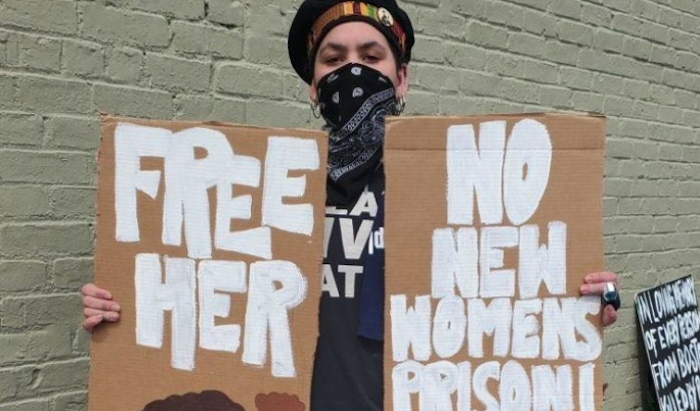
An update on the fight over whether to replace MCI-Framingham, the oldest Women’s prison in America
Over the past few years, we have reported extensively—along with the Boston Institute for Nonprofit Journalism, as well as a number of top-notch reporters who pay close attention to issues around incarceration, in Mass and elsewhere—on the effort to build a new prison for women in this state, as well as the counter-effort resisting the pro-prison push.
That reporting on MCI-Framingham has included an epic feature on the fight to document the horrors at America’s oldest women’s prison by Shelby Grebbin and Isha Marathe, as well that writing team’s followup documenting the impact of that institution on families, plus Dan Atkinson’s work specifically looking at the fight over a new facility (don’t miss the action-packed followup either). And also articles about day-to-day activism at the prison, and Jean Trounstine’s wall-to-wall coverage of the Mass Department of Correction.
And now, there’s actual news coming out of Beacon Hill about the Framingham situation. As Chris Lisinski of the State House News Service explained:
Now in the mix with 10 weeks remaining before the traditional end of formal business is a $5 billion bond bill that would fund investments in government infrastructure, primarily decades-old state buildings.
While the original legislation came from Gov. Charlie Baker, he may not be so keen on a change the House made that would order a five-year pause of any construction or expansion of correctional facilities. The moratorium would upend the administration’s still-unfolding exploration of a new women’s prison in Norfolk, and if Baker decides he wants to keep that option open by vetoing the language, lawmakers would need to leave themselves enough time for an override, an option they haven’t always protected despite their supermajorities.
“The House passed the prison moratorium today! This stops the proposed new women’s prison,” Rep. Christine Barber, a Somerville Democrat, tweeted on Thursday. “We need to invest in mental health supports, substance use treatment & housing, not jails.”
Of course, the House would need to get the Senate to go along and, you know, pass a moratorium law before any prison proposals will face an actual legal obstacle.
Thanks to SHNS as always for the straightforward analysis of what is an incredibly complicated process. We’ll keep you posted on developments as this and a zillion other bills, rewrites, amendments, and overrides unfold in the legislature over the next few weeks.
Dig Staff means this article was a collaborative effort. Teamwork, as we like to call it.

